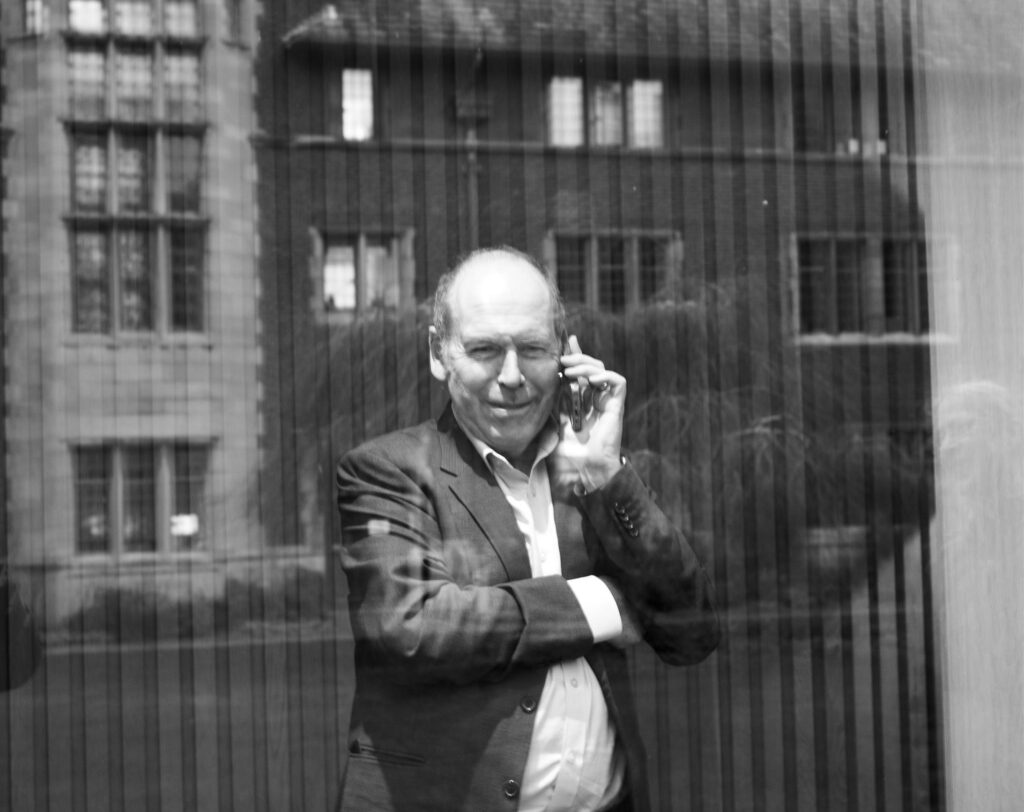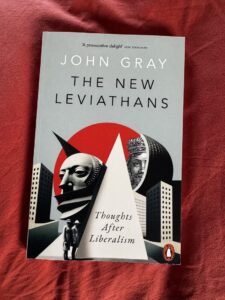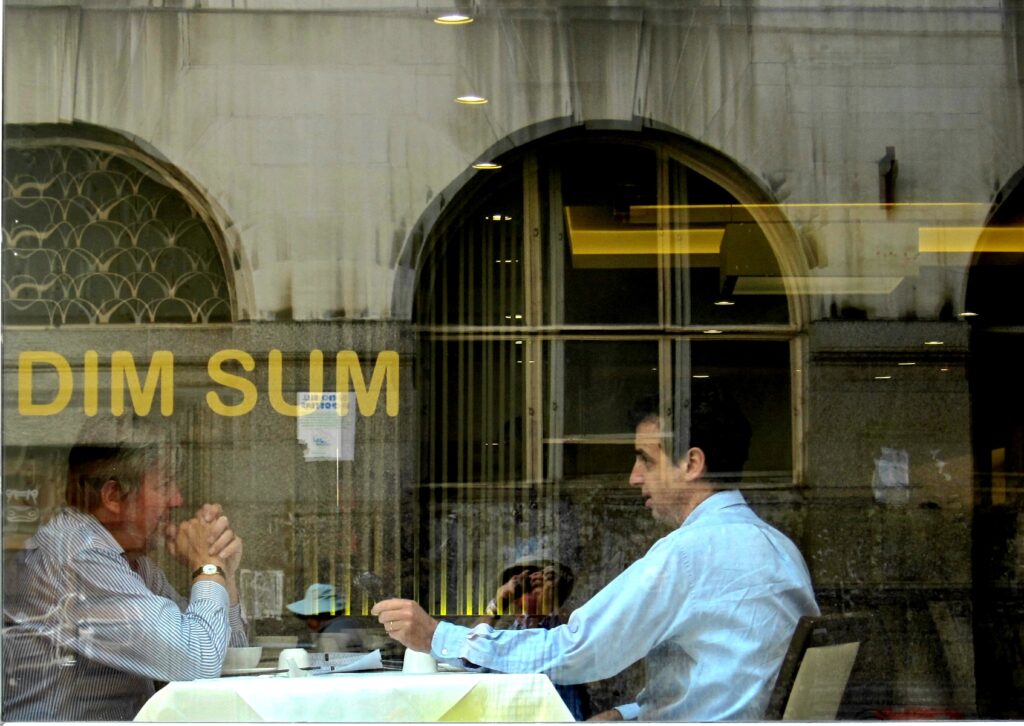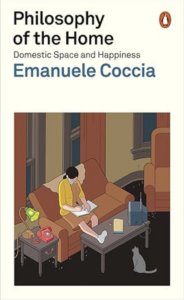Dictionary Sam

The stained-glass portrait of Samuel Johnson in his house in Gough Square, just off Fleet Street, in London. (Which is well worth a visit, btw.)
Quote of the Day
”Whenever AI ‘generates’ something impressive, the first question we should always ask is: ‘What does the closest sample in the training data look like?’ LLMs are amazing interfaces for accessing the world’s information but they need to be treated as the ‘search and synthesis’ tools they are.”
- Chris Offner (of ETH Zurich)
Musical alternative to the morning’s radio news
Crosby, Stills and Nash | Teach your Children | 1970
Link
Vintage recording. One of my favourite songs. I often wonder what my kids make of it.
Long Read of the Day
Stop using generative AI as a search engine
In their increasingly frantic search for a business model, LLM providers are trying to move onto Google’s territory. Instead of Googling something, why not use, say, Perplexity. That way, instead of getting a list of sites in response to a query, you just get the answer. What’s not to like?
Plenty, says Elizabeth Lopatto in an interesting cautionary tale in The Verge.
How many presidents have pardoned their relatives? It turns out this is a tricky question to answer.
Following Hunter Biden’s pardon by his father, several commentators have looked to precedents — other pardons of relatives. Case in point: Ana Navarro-Cardenas, a commentator who appears on The View and CNN. On X, Navarro-Cardenas cited a pardon granted by President Woodrow Wilson of his brother-in-law Hunter deButts. That was news to me.
The official clemency records search only works for people who’ve applied since 1989, and a page of clemency recipients by president only stretches back to Richard Nixon. Such a pardon would have been controversial, yet it wasn’t mentioned on the bio page in Wilson’s presidential library. Find a Grave suggests Wilson didn’t even have a brother-in-law with that name — it shows nine brothers-in-law, but not our man Hunter deButts. I can’t prove Wilson didn’t pardon a Hunter deButts; I can only tell you that if he did, that person was not his brother-in-law…
You get the point. LLMs are useful, but you have to treat them as you would any eager, intelligent and industrious intern. You need to check their work before depending on it.
Later John Gruber had some useful observations (also worth reading) on Lopatto’s essay.
I want to make clear that I don’t think Lopatto is in any way a head-in-the-sand Luddite. But all of the arguments being made today against using generative AI to answer questions sound exactly like the arguments against citing web pages as sources in the 1990s. The argument then was basically “Anyone can publish anything on the web, and even if a web page is accurate today, it can be changed at any time” — which was true then and remains true today.3 But it’s just a new technology — one that isn’t going anywhere because it’s incredibly useful in ways nothing else is, but its inherent downsides will force us to adapt and learn new ways of sourcing, citing, and verifying information. The rise of the web didn’t make libraries go away. Generative AI won’t make web search go away.
The problem with conventional search engines (particularly Google) is that their remorseless descent into enshittification is making them increasingly annoying to use. I use Perplexity quite a bit, though never for search. What I like about it is that it provides sources for whatever response it produces.
After AI is photography dead?
On seeing the first daguerreotype around 1840, the French painter Paul Delaroche famously, declared that “From today, painting is dead.” He was wrong, of course, but the impact of the new medium was profound, nevertheless. As the art historian Caterina Bellinetti observed, photography initially developed by following, and then challenging, the themes that were commonly used by painters. But then the middle classes, who desired (but could not afford) family portraits by artists, took to photography and the rest is history.
But now photography has its own crisis moment: does the advent of generative AI mean the death of photography? The leading photography magazine, Aperture has a current issue specially devoted to the question.
Here’s one of the striking images that illustrates the problem.

It latches on to one of the more hallowed genres in photographic history — the work of photographers sent out into rural America by Roosevelt’s Farm Security Administration to record the struggles of rural Americans during the Great Depression. One of those photographers was Dorothea Lange.
It’s good but not entirely convincing if you know her work. Below is one of her actual photographs of a farmer of the period.

Caption: A former tenant farmer who had become a tractor driver. Taken in Bell County near Temple, 1936. Looking at him and knowing how hot it gets here I can assure you that this was one hard-working man.
So photography ain’t dead. But Generative AI is now so good that serious practitioners will need to find ways of providing rock-solid authentication for their work. Alas, it doesn’t come cheap. The new Leica M11-P camera incorporates the ability to attach the digital Adobe Contact Credentials label to images at the point of capture to protect authenticity. The new system, which involves a physical chip, will be incorporated in most (if not all) future Leicas but it is not something that can be installed retrospectively in older models. The M11-P retails at £8000 just for the camera body. Authentication doesn’t come cheap — yet.
My commonplace booklet
The slow-motion car crash that is the Intel corporation continues. In his commentary on it John Gruber remembers a famous aphorism of Andy Grove, the man who built Intel into a dominant corporate giant:
”Business success contains the seeds of its own destruction. Success breeds complacency. Complacency breeds failure. Only the paranoid survive.”
Yep.
Linkblog
Something I noticed, while drinking from the Internet firehose.
Errata

The fragmented rock in Friday’s edition might not be a glacial erratic, as I thought. Erratics are often rocks of a different type from their surroundings because they were delivered by a glacier. This one looks awfully like the local geology round the lake.
This Blog is also available as an email three days a week. If you think that might suit you better, why not subscribe? One email on Mondays, Wednesdays and Fridays delivered to your inbox at 6am UK time. It’s free, and you can always unsubscribe if you conclude your inbox is full enough already! <hr




















